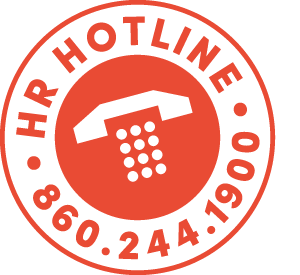HR Hotline: Can a Worker Fired for Drinking on the Job Get Unemployment Benefits?

Q: We had to terminate an employee who repeatedly showed up for work smelling of alcohol. We got notified that he checked into rehab and also filed for unemployment benefits. Isn’t drinking at work willful misconduct, disqualifying him from unemployment benefits?
A: Whether your employee’s conduct is misconduct will depend on the evidence he is able to present.

1. Is the claimant an alcoholic? If all he can present is a self-diagnosis—for example, “I am an alcoholic, I had no control over my drinking, so it can’t be deliberate misconduct”—he will likely be deemed to have engaged in disqualifying misconduct and denied benefits.
However, a medical diagnosis from a healthcare professional or rehab counselor attesting to his alcoholism will likely negate the intentionality, deliberateness, or reckless indifference essential to finding that he was terminated for a disqualifying form of willful misconduct.
While no single factor is conclusive, other circumstances or conduct indicative of alcoholism include participation in an alcohol treatment or EAP program; a history of drinking, hospitalization, or other alcohol induced problems; intoxication during work or drinking before or at work; persistent hangovers at work; patterns of tardiness or absences, particularly after days off or the day after payday; and unexplained deterioration in job performance.
2. Is the claimant’s misconduct a product of his alcoholism? Behavior commonly attributable to alcoholism includes blackouts, extended absences or repeated tardiness without communication to the employer, sleeping on the job, poor or erratic work performance, inappropriate behavior, and impaired judgment. The claimant will bear the burden of establishing a connection, showing that his misconduct was a product of his alcoholism.
3. Has the claimant demonstrated that his illness is sufficiently under control so that he is able to work and available for work? Unemployment benefit eligibility requires, among other factors, that the claimant is exposed to the labor market and is willing, ready, and able to accept suitable work.
Although there are many examples of “functioning alcoholics” sustaining a veneer of responsible employment, when a discharge is triggered by misconduct as described above, evidence is required to show successful participation in rehabilitation related to the condition that led to the discharge.
This would need to be more than a self-diagnosis asserting that the claimant is cured and is able to work.
State and federal disability laws clearly recognize alcoholism as a medical condition.
For example, an employee who is fired for being an alcoholic and whose condition became apparent not from observing poor job performance or conduct problems but through a voluntary or inadvertent disclosure of treatment or program participation, may have a strong legal claim for disability discrimination.
In contrast, an employee fired for drinking on the job or any of the behavioral symptoms referenced above, could not avoid accountability by claiming his alcoholism should excuse his conduct.
Allowing the consumption of alcohol on the job is not a form of reasonable accommodation required under disability laws.
However, some work schedule flexibility to attend AA meetings, for example, is likely an accommodation that would be required, as long as the alcoholic is satisfactorily performing essential job functions and meeting performance standards.
While it's understandable that you may be distressed that an alcoholic's seeming "irresponsible" behavior has disrupted your business, and then when fired, he or she is not deemed by the state unemployment system to have engaged in disqualifying willful misconduct, take heart in the second phase of the eligibility analysis: Benefits are withheld until the claimant demonstrates a successful state of sobriety and is able to reenter the workforce and resume responsible, productive employment.
HR problems? Email or call Mark Soycher at the HR Hotline (860.244.1900) | @HRHotline
RELATED
EXPLORE BY CATEGORY
Stay Connected with CBIA News Digests
The latest news and information delivered directly to your inbox.


